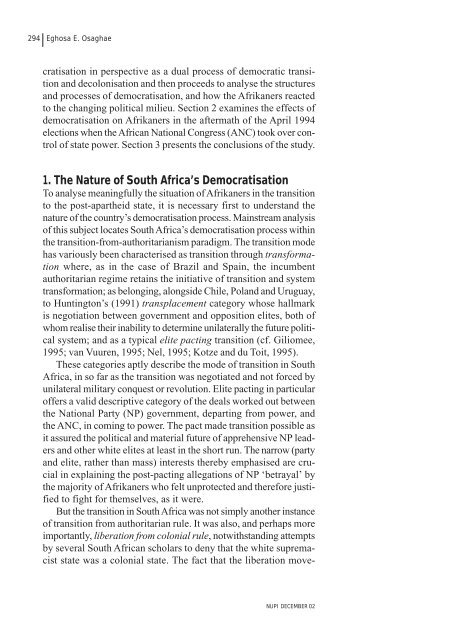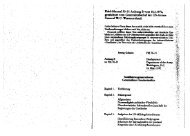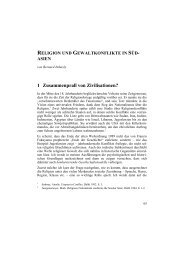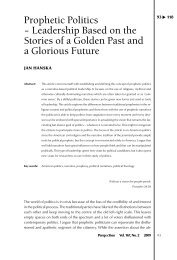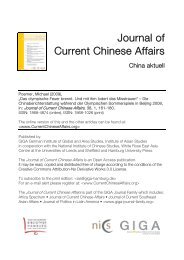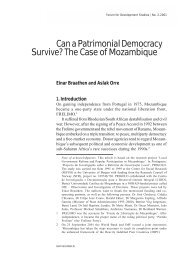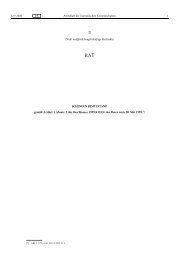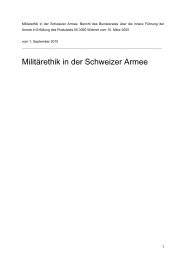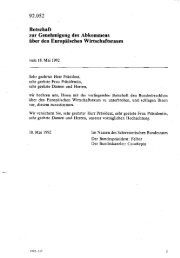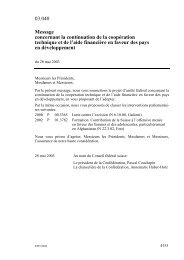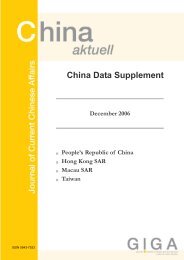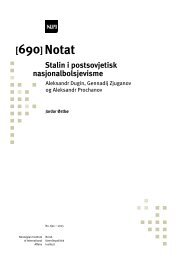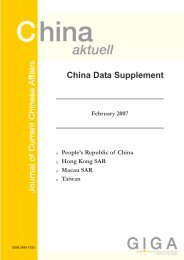What Democratisation Does to Minorities Displaced from Power: The ...
What Democratisation Does to Minorities Displaced from Power: The ...
What Democratisation Does to Minorities Displaced from Power: The ...
You also want an ePaper? Increase the reach of your titles
YUMPU automatically turns print PDFs into web optimized ePapers that Google loves.
294<br />
Eghosa E. Osaghae<br />
cratisation in perspective as a dual process of democratic transition<br />
and decolonisation and then proceeds <strong>to</strong> analyse the structures<br />
and processes of democratisation, and how the Afrikaners reacted<br />
<strong>to</strong> the changing political milieu. Section 2 examines the effects of<br />
democratisation on Afrikaners in the aftermath of the April 1994<br />
elections when the African National Congress (ANC) <strong>to</strong>ok over control<br />
of state power. Section 3 presents the conclusions of the study.<br />
1. <strong>The</strong> Nature of South Africa’s <strong>Democratisation</strong><br />
To analyse meaningfully the situation of Afrikaners in the transition<br />
<strong>to</strong> the post-apartheid state, it is necessary first <strong>to</strong> understand the<br />
nature of the country’s democratisation process. Mainstream analysis<br />
of this subject locates South Africa’s democratisation process within<br />
the transition-<strong>from</strong>-authoritarianism paradigm. <strong>The</strong> transition mode<br />
has variously been characterised as transition through transformation<br />
where, as in the case of Brazil and Spain, the incumbent<br />
authoritarian regime retains the initiative of transition and system<br />
transformation; as belonging, alongside Chile, Poland and Uruguay,<br />
<strong>to</strong> Hunting<strong>to</strong>n’s (1991) transplacement category whose hallmark<br />
is negotiation between government and opposition elites, both of<br />
whom realise their inability <strong>to</strong> determine unilaterally the future political<br />
system; and as a typical elite pacting transition (cf. Giliomee,<br />
1995; van Vuuren, 1995; Nel, 1995; Kotze and du Toit, 1995).<br />
<strong>The</strong>se categories aptly describe the mode of transition in South<br />
Africa, in so far as the transition was negotiated and not forced by<br />
unilateral military conquest or revolution. Elite pacting in particular<br />
offers a valid descriptive category of the deals worked out between<br />
the National Party (NP) government, departing <strong>from</strong> power, and<br />
the ANC, in coming <strong>to</strong> power. <strong>The</strong> pact made transition possible as<br />
it assured the political and material future of apprehensive NP leaders<br />
and other white elites at least in the short run. <strong>The</strong> narrow (party<br />
and elite, rather than mass) interests thereby emphasised are crucial<br />
in explaining the post-pacting allegations of NP ‘betrayal’ by<br />
the majority of Afrikaners who felt unprotected and therefore justified<br />
<strong>to</strong> fight for themselves, as it were.<br />
But the transition in South Africa was not simply another instance<br />
of transition <strong>from</strong> authoritarian rule. It was also, and perhaps more<br />
importantly, liberation <strong>from</strong> colonial rule, notwithstanding attempts<br />
by several South African scholars <strong>to</strong> deny that the white supremacist<br />
state was a colonial state. <strong>The</strong> fact that the liberation move-<br />
NUPI DECEMBER 02


